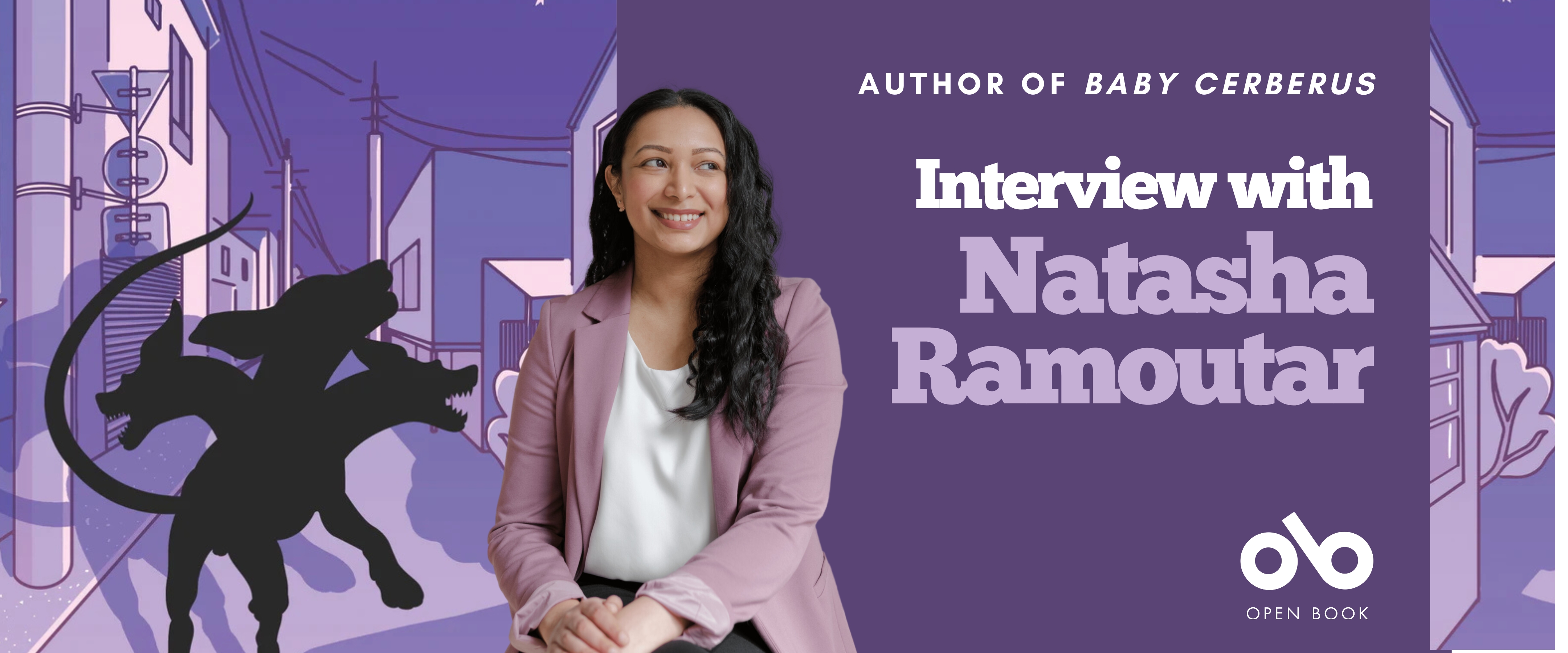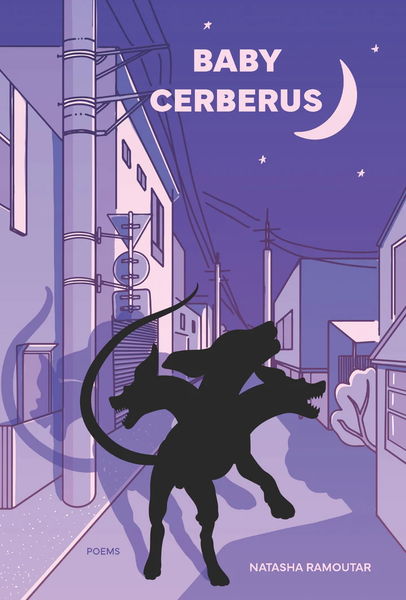Natasha Ramoutar's Collection, Baby Cerebus, Contains Multitudes in its Imagery and Depth of Feeling
Emerging literary star Natasha Ramoutar has already made an impact with her debut poetry collection, Bittersweet (Mawenzi House), which was shortlisted for the Gerald Lampert Memorial Award and established her as a writer to watch. Doubling down on the skills exhibited in that work, she's back with another new collection that is sure to wow readers.
This new collection, memorably titled Baby Cerberus (Wolsak & Wynn), is a nimble and stirring series of poems that shifts focus from topics as varied as classical mythology, folklore, video games, and speculative futures. These poems weave in riddles and playful, invisible threads that tether the sentences together, exploring deeply felt currents of joy and kinship that speak to a multitude of lived experiences and the ways that we care for each other.
Never predictable, and always enthralling, it's a mighty return for this exciting new voice. And is sure to add another layer to the author's already impressive CV as a poet, editor, and curator of new literature.
We're thrilled to share this Line & Lyric interview with the author today on Open Book, and you can check it out right here!
Open Book:
What is the first poem you remember being affected by?
Natasha Ramoutar:
A few different poems held my attention as a young girl: Christina Rossetti’s “Goblin Market,” Samuel Taylor Coleridge’s “The Rime of the Ancient Mariner,” and two of Edgar Allan Poe’s works, “The Raven” and “Annabel Lee.” I was drawn to rhyme, metre, narrative, and voice in each of these. As a set that we read in school for a poetry unit, they were my introduction to the way narrative and character could function in a poem, which felt a lot less daunting to think about writing than something like confessional poetry.
OB:
What one poem—from any time period—do you wish you had been the one to write?
NR:
Paige Lewis’ “When I Tell My Husband I Miss the Sun, He Knows” is one of my favourite poems and one that I wish I could emulate. There is such a gentle playfulness in the form that reflects the content of the poem in a beautiful way. The enjambment between the second to last line and the final line creates the most delightful suspension. I’d love to work towards that level of mastery over rhythm, pacing, and the distinct voice that the speaker of this poem has.
OB:
What has been your most unlikely source of inspiration?
Your CanLit News
Subscribe to Open Book’s newsletter to get local book events, literary content, writing tips, and more in your inbox
NR:
After my debut collection Bittersweet, I was really interested in finding new sites for poetic exploration as an experiment. I was most surprised about being drawn to popular culture like video games, television shows, and memes. One of my favourite poems in the collection is “Interstellar Checkpoint II,” which is written in the voice of Starfire from the 2003 cartoon iteration of Teen Titans. I loved that these unlikely sources of inspiration felt like a new space to play and have fun with.
OB:
Do you write poems individually and begin assembling collections from stand-alone pieces, or do you write with a view to putting together a collection from the beginning?
NR:
I write poems individually based on whatever is pulling me to the page in a very disorganized way. I naturally write towards a collection subconsciously because I will write on a few topics, themes, or questions that consume me for months. The real challenge is catching myself when I realize a throughline is emerging then beginning to intentionally implement structure. I realized I had a collection with Baby Cerberus much earlier than with my debut Bittersweet, so I was able to spend some time with a half-written manuscript and plan out what I wanted the concept to be, then write towards it for the remainder of the manuscript draft.
OB:
What do you do with a poem that just isn't working?
NR:
My poetry collection Baby Cerberus was originally titled It Keeps Us Here after a different poem in the collection. “It Keeps Us Here” turned out to be the poem that needed the most work. Not only was I really close to the poem emotionally – and therefore a bit sentimental and precious about it – but the imagery in the poem wasn’t calling back to the rest of the collection. My editor Paul Vermeersch suggested using the Olympics as an entry point which sent me on a research quest digging up ancient and modern Olympic facts. I also reviewed past notes from workshops and asked my friend and fellow poet Adrian for his opinion on what was sticking.
My process with “It Keeps Us Here” is one that I use for many poems that aren’t working. A combination of research to get my gears turning again, time away from the poem to create some distance so I can edit more objectively, and chatting with fellow poets and my editor(s) allow me to look at a piece with fresh eyes.
OB:
What's more important in your opinion: the way a poem opens or the way it ends?
NR:
The most important thing to me when writing my poems is neither the opening or the ending – it’s where the shift occurs. I know it might be a bit archaic for me to be thinking about something akin to a sonnet’s volta, but it’s always in the back of my mind. Sometimes if the poem is building towards a narrative or emotional turn at the end, then the ending would be the highest stakes for me. Alternatively, sometimes I write with the shift in the first few lines and spend the rest of the poem unpacking the shift. In that case, the opening is the most critical.
______________________________________
Natasha Ramoutar is a writer of Indo-Guyanese descent from Toronto. Her debut collection of poetry, Bittersweet, published in 2020 by Mawenzi House, was shortlisted for the Gerald Lampert Memorial Award. She was the editor of FEEL WAYS, an anthology of Scarborough literature. She is a senior editor with Augur Magazine and serves on the editorial board at Wolsak & Wynn.






